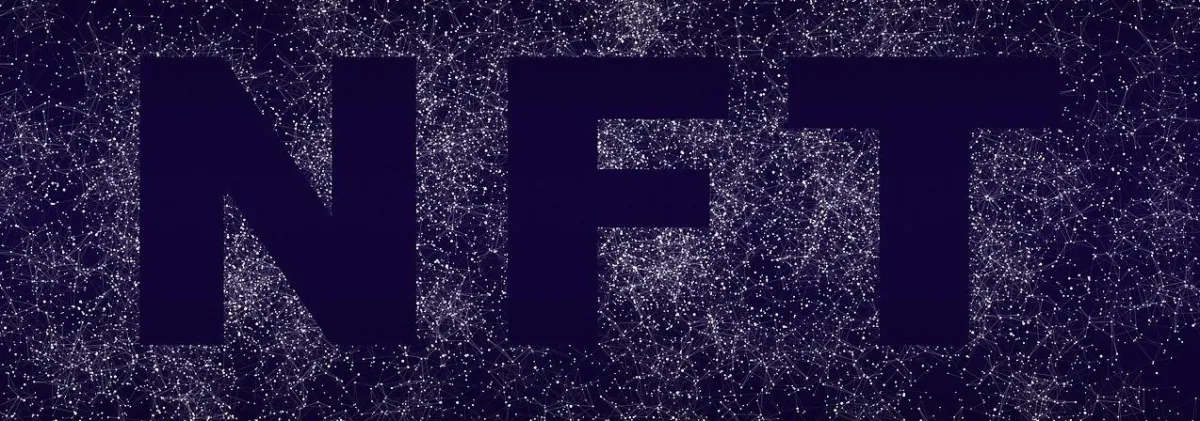Blog

Understanding NFTs: A Guide to Digital Ownership and Unique Assets
What Are NFTs and How Can You Buy One?
Non-Fungible Tokens (NFTs) are digital assets that represent ownership or proof of authenticity for unique items or pieces of content, stored securely on a blockchain. Unlike cryptocurrencies like Bitcoin or Ethereum, which can be exchanged one-for-one due to their identical nature, NFTs are unique. Each NFT contains distinct information or attributes, making it one-of-a-kind.
Key Features of NFTs
NFTs have several distinguishing characteristics. They are unique and indivisible, meaning that each NFT has its own specific metadata and cannot be broken down into smaller units. Ownership and provenance are key aspects, as the blockchain technology behind NFTs allows for easy verification and transfer of ownership, providing a transparent history of transactions. Furthermore, NFTs are interoperable, meaning they can be used across different platforms and applications that support the same standards. In addition, NFTs are programmable; smart contracts allow complex functionality to be encoded into them.

Common Uses of NFTs
NFTs have found applications in various domains. Digital art is a significant area where artists create and sell digital pieces as NFTs, often receiving royalties on future sales. Collectibles, like CryptoKitties or NBA Top Shot, represent another popular use. In the realm of virtual real estate, platforms like Decentraland allow users to own virtual land. Gaming items in games can be traded or sold outside the game ecosystem as NFTs. Music and media creators also leverage NFTs to sell their work directly to fans, ensuring they maintain more control and profit from their creations.
How to Buy an NFT
Step 1: Set Up a Digital Wallet - To get started, you need to set up a digital wallet to store your cryptocurrencies and NFTs. Popular wallets include MetaMask, Trust Wallet, and Coinbase Wallet. Ensure your wallet supports the blockchain you plan to use, such as Ethereum or Binance Smart Chain.
Step 2: Buy Cryptocurrency - Next, purchase cryptocurrency, usually Ethereum (ETH), from platforms like Coinbase, Binance, or Kraken. This cryptocurrency will be used to buy NFTs.
Step 3: Transfer Crypto to Your Wallet - After purchasing cryptocurrency, transfer it from the exchange to your digital wallet.
Step 4: Choose an NFT Marketplace - Now, select an NFT marketplace. Some of the most popular marketplaces include OpenSea, the largest NFT marketplace supporting a wide range of digital assets; Rarible, a community-owned platform where users can create and sell NFTs; Foundation, a curated platform focused on digital art; SuperRare, a marketplace for unique, single-edition digital artworks; NBA Top Shot, which allows users to buy, sell, and trade officially licensed NBA collectible highlights; and Decentraland, a virtual world where you can buy, sell, and trade virtual land and assets.
Step 5: Browse and Purchase - Once you’ve connected your wallet to the marketplace, browse through the available NFTs, checking their details carefully. When you find an NFT you want to buy, make the purchase. The NFT will be transferred to your wallet upon completing the transaction.
Why Buy NFTs?
Buying NFTs comes with several benefits. It provides a way to support creators directly, as purchasing NFTs allows artists and content creators to earn from their work. Owning NFTs also gives you ownership of unique digital items that can potentially appreciate in value. For some, NFTs are seen as an investment opportunity, though it's important to note that the market is speculative and can be volatile. Additionally, owning certain NFTs can grant access to exclusive communities, events, or content, providing a sense of belonging and unique experiences.

Risks and Considerations
Investing in NFTs carries risks and requires careful consideration. The value of NFTs can be highly volatile, and there are risks of scams and fraud, with counterfeit or fraudulent NFTs sometimes appearing on the market. The environmental impact of NFTs is another concern, particularly for blockchains like Ethereum, which have a significant carbon footprint. Additionally, the regulatory environment for NFTs is still evolving, which can introduce uncertainty.
NFTs offer a revolutionary way to own, trade, and interact with digital assets, presenting exciting opportunities for artists, collectors, and investors. However, it’s crucial to approach the NFT market with caution, conduct thorough research, and be aware of the potential risks involved. By understanding the basics and following the steps outlined above, you can start exploring the world of NFTs and potentially find unique digital items that hold personal and financial value.
Stay tuned for more updates on advancements in Environmental PhilanthroInvestment and its collaborations.

About PhilanthroInvestors
PhilanthroInvestors combines traditional venture capital financing tools with philanthropic principles to achieve social impact. By secure, meaningful, and profitable investments, they bring capital and also change people’s lives.
PhilanthroInvestors are currently working in four sectors – Housing, Water, Health and Environment – and will be adding more investment sectors in the future. PhilanthroInvestors founder Ivan Anz owns companies on three continents and has investors in 14 countries.
Discover how investing with us can secure your future. Get in touch here.
© 2026 l PhilanthroInvestors®
THE CONTENT OF THIS SITE DOES NOT CONSTITUTE AN OFFER TO SELL OR THE SOLICITATION OF AN OFFER TO BUY ANY SECURITIES.





